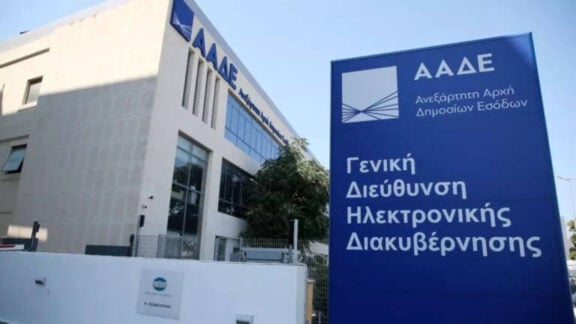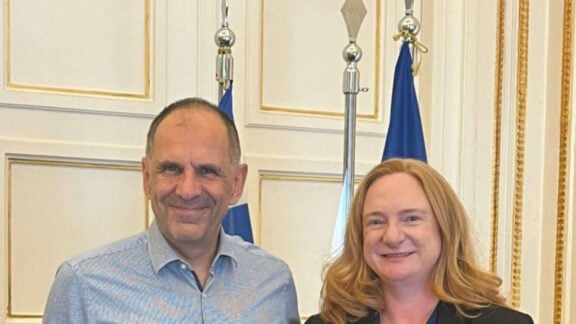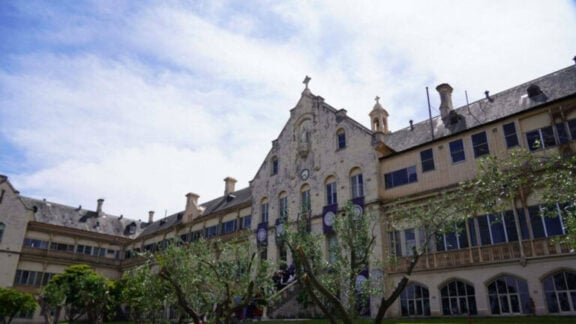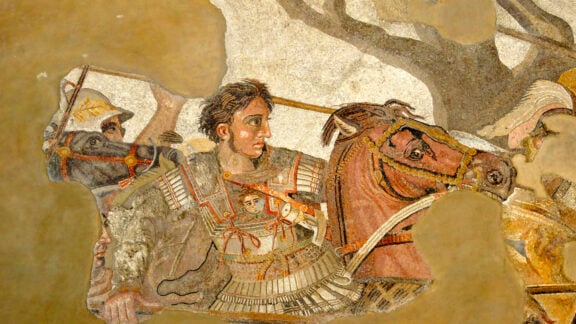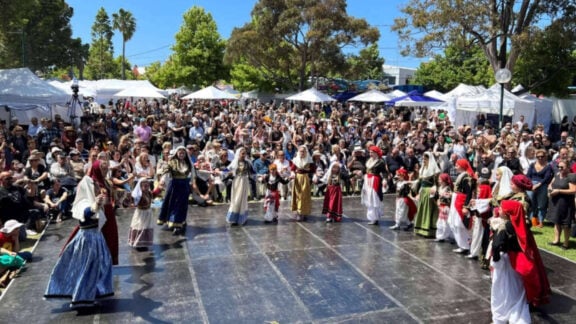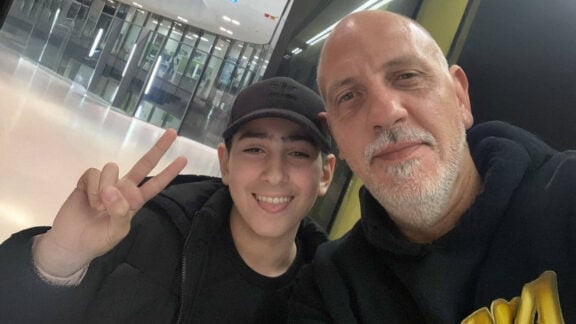The generation of Greeks that came to Australia in the ’50s and ’60s is fast disappearing, stresses Associate Professor Nicholas Doumanis from the School of Humanities & Languages in the Faculty of Arts & Social Sciences at the Univerity of New South Wales.
Determined to not let this rich part of Australian and Greek history, “people’s stories of adversity, strength, and progress to affluence”, fade away with death notices, he started collecting archives from the archdiocese, community organisations and Greek clubs while sourcing personal stories from ordinary people.
“In NSW University, we have the largest number of students of Greek background and we gained funding for Greek language courses, but we realised Greek students don’t want to do Greek language at uni.
“Three years ago I came up with the idea of using the funding for research and build a database for our legacy to carry into the future,” he tells Neos Kosmos.
Via his pre-existing relationship with the UNSW and the State Library of NSW, Doumanis started working on a massive Greek Australian archival collection of historic value which includes letters, postcards, home movies and other documents curated by and held at the State Library. An oral archive featuring interviews with about 200 Greek Australians will also be available to the public.
The original fund was almost enough to set the foundations of this project, but in order for it to be realised, Doumanis will need the financial support of the community.
“We are also looking into creating a book and an on-line data base,” Doumanis continues.
“The idea is for this pilot project starting from Sydney’s Greek community to be adopted by other states as well.”
As Doumanis clarifies, pre-war migration populations’ history has been well documented, however, there is a significant gap in post-war history, which saw the largest wave come from Greece to Australia. This wave saw mainly village and poor people come to the Lucky Country, either fleeing war or seeking better living conditions.
“They would usually arrive by ship with their life in one small suitcase. Most started out as labourers but managed to buy their own homes, create families and set up their own businesses within a short period of time, even helped others back home.
“A good example is the Greek milk bars that flourished mainly in the country, a real story about hard work and success.”
While many stories of social and financial adversity, not to mention xenophobia, have seen publicity, Doumanis insists Greek migration to Australia has more positive angles than negative.
“Everyone’s copped discrimination one way or the other, but it was a foreign country and it did not give back unless you worked hard and Greeks did well; worked their way into the Australian dream. I could say in many ways, they moulded it.”
As pivotal as the contribution of the Greek population has been to what modern Australia is “Australian historians don’t really know what to make of it, therefore it does not figure in the Australian history writing,” says Doumanis.
“Don’t forget,” he stresses, “Greece don’t genuinely consider us as part of their history. It’s upon us to show that we are part of the Australian history and a significant part of the Greek diaspora experience. We have to show that Greek history has not only continued within Greece but with Greeks outside of Greece. I’ve done lectures on this and it has been always the case. Greeks leave all the time and they create little Greeces everywhere else; they’ve done it since antiquity.”
For Doumanis, it is the stories of ordinary people who took a risk to come Down Under in search of security and ended up driving change and evolution, not only within the established Greek Australian community but the wider social fabric.
“Greeks in Australia have assimilated, but contrary to other European groups they try to preserve their Greek identity as well and are proud of it,” he says.
“If you are going to talk about migration you have to talk to migrants, especially the ordinary, everyday people, see how their lives changed through the years and what they passed on to the younger generations,” he says.
One example of how Greek migrants evolved in time is a rare archive, a collection of documents on 78 single and betrothed Greek women who were interviewed in 1965 before they came to Australia to get married. The women were again interviewed in the ’70s, in the ’90s, and for the last time seven years ago.
“Through these interviews we get to see how it was like to be a young woman on your way to Australia probably waiting for someone to marry you on the other end, someone you most likely had never met. Then how their feelings and status changed after getting married, raising a family, losing loved ones and so on. It’s a wonderful archive. Pure gold that had been sitting in somebody’s garage on its way to the State Library of NSW for us to access. A valuable part of our history.
“These stories are important because your children and grandchildren should not take them for granted: they ought to know about the kinds of struggles and challenges their forebears faced and the contributions they made to our nation.”
To learn more about the archive and how your families’ history can be preserved, contact Associate Professor Nick Doumanis at n.doumanis@unsw.edu.au
To support the fund by making a donation follow this link https://donate.grassrootz.com/unswaustralia/greek-australian-archive

